Important Safety Information
Indications and Usage
RELEUKO® is a leukocyte growth factor indicated to:
- Decrease the incidence of infection‚ as manifested by febrile neutropenia‚ in patients with nonmyeloid malignancies receiving myelosuppressive anti-cancer drugs associated with a significant incidence of severe neutropenia with fever
- Reduce the time to neutrophil recovery and the duration of fever, following induction or consolidation chemotherapy treatment of patients with acute myeloid leukemia (AML)
- Reduce the duration of neutropenia and neutropenia-related clinical sequelae‚ e.g.‚ febrile neutropenia, in patients with nonmyeloid malignancies undergoing myeloablative chemotherapy followed by bone marrow transplantation (BMT)
- Mobilize autologous hematopoietic progenitor cells into the peripheral blood for collection by leukapheresis
- Reduce the incidence and duration of sequelae of severe neutropenia‚ (e.g., fever‚ infections‚ oropharyngeal ulcers) in symptomatic patients with congenital neutropenia‚ cyclic neutropenia‚ or idiopathic neutropenia
- Increase survival in patients acutely exposed to myelosuppressive doses of radiation (hematopoietic syndrome of acute radiation syndrome)
Contraindications
Patients with a history of serious allergic reactions to human granulocyte colony-stimulating factors such as filgrastim or pegfilgrastim products.
Before you take RELEUKO®, tell your healthcare provider if you are pregnant or plan to breast feed, and if you have sickle cell disorder, kidney problems or receiving radiation therapy.
Warnings and Precautions
- Fatal splenic rupture: Patients may experience enlarged spleen which can rupture and cause death.
- Acute respiratory distress syndrome (ARDS): Patients may develop fever and lung infiltrates or respiratory distress for ARDS. Discontinue RELEUKO® in patients with ARDS.
- Fatal sickle cell crises: Serious sickle cell crises have been reported in patients with sickle cell disorders receiving RELEUKO®. Discontinue RELEUKO® if sickle cell crisis occurs.
- Serious allergic reactions, including anaphylaxis: Permanently discontinue RELEUKO® in patients with serious allergic reactions.
- Kidney injury (Glomerulonephritis): Kidney injury have been reported in patients on RELEUKO®. Consider dose-reduction or interruption of RELEUKO® in patients with kidney injury.
- Myelodysplastic Syndrome (MDS) and Acute Myeloid Leukemia (AML): Monitor patients with breast and lung cancer using RELEUKO® in conjunction with chemotherapy and/or radiotherapy for signs and symptoms of MDS/AML.
- Decreased platelet count (thrombocytopenia); increased white blood cell count (leukocytosis) and inflammation of your blood vessels (cutaneous vasculitis) have been reported. Monitor platelet counts and white blood cell count.
- Aortitis has been reported in patients receiving filgrastim products. Discontinue treatment if aortitis is suspected.
Adverse Reactions
Most common adverse reactions in patients:
- With nonmyeloid malignancies receiving myelosuppressive anti-cancer drugs are pyrexia, pain, rash, cough, and dyspnea.
- With AML are pain, epistaxis and rash.
- With nonmyeloid malignancies undergoing myeloablative chemotherapy followed by Bone Marrow Transplant is rash.
- Undergoing peripheral blood progenitor cell mobilization and collection are bone pain, pyrexia and headache.
- With severe chronic neutropenia are pain, anemia, epistaxis, diarrhea, hypoesthesia and alopecia.
IMPORTANT SAFETY INFORMATIONN
Important Safety Information
Indications and Usage
RELEUKO® is a leukocyte growth factor indicated to:
- Decrease the incidence of infection‚ as manifested by febrile neutropenia‚ in patients with nonmyeloid malignancies receiving myelosuppressive anti-cancer drugs associated with a significant incidence of severe neutropenia with fever
- Reduce the time to neutrophil recovery and the duration of fever, following induction or consolidation chemotherapy treatment of patients with acute myeloid leukemia (AML)
- Reduce the duration of neutropenia and neutropenia-related clinical sequelae‚ e.g.‚ febrile neutropenia, in patients with nonmyeloid malignancies undergoing myeloablative chemotherapy followed by bone marrow transplantation (BMT)
- Mobilize autologous hematopoietic progenitor cells into the peripheral blood for collection by leukapheresis
- Reduce the incidence and duration of sequelae of severe neutropenia‚ (e.g., fever‚ infections‚ oropharyngeal ulcers) in symptomatic patients with congenital neutropenia‚ cyclic neutropenia‚ or idiopathic neutropenia
- Increase survival in patients acutely exposed to myelosuppressive doses of radiation (hematopoietic syndrome of acute radiation syndrome)
Contraindications
Patients with a history of serious allergic reactions to human granulocyte colony-stimulating factors such as filgrastim or pegfilgrastim products.
Before you take RELEUKO®, tell your healthcare provider if you are pregnant or plan to breast feed, and if you have sickle cell disorder, kidney problems or receiving radiation therapy.
Warnings and Precautions
- Fatal splenic rupture: Patients may experience enlarged spleen which can rupture and cause death.
- Acute respiratory distress syndrome (ARDS): Patients may develop fever and lung infiltrates or respiratory distress for ARDS. Discontinue RELEUKO® in patients with ARDS.
- Fatal sickle cell crises: Serious sickle cell crises have been reported in patients with sickle cell disorders receiving RELEUKO®. Discontinue RELEUKO® if sickle cell crisis occurs.
- Serious allergic reactions, including anaphylaxis: Permanently discontinue RELEUKO® in patients with serious allergic reactions.
- Kidney injury (Glomerulonephritis): Kidney injury have been reported in patients on RELEUKO®. Consider dose-reduction or interruption of RELEUKO® in patients with kidney injury.
- Myelodysplastic Syndrome (MDS) and Acute Myeloid Leukemia (AML): Monitor patients with breast and lung cancer using RELEUKO® in conjunction with chemotherapy and/or radiotherapy for signs and symptoms of MDS/AML.
- Decreased platelet count (thrombocytopenia); increased white blood cell count (leukocytosis) and inflammation of your blood vessels (cutaneous vasculitis) have been reported. Monitor platelet counts and white blood cell count.
- Aortitis has been reported in patients receiving filgrastim products. Discontinue treatment if aortitis is suspected.
Adverse Reactions
Most common adverse reactions in patients:
- With nonmyeloid malignancies receiving myelosuppressive anti-cancer drugs are pyrexia, pain, rash, cough, and dyspnea.
- With AML are pain, epistaxis and rash.
- With nonmyeloid malignancies undergoing myeloablative chemotherapy followed by Bone Marrow Transplant is rash.
- Undergoing peripheral blood progenitor cell mobilization and collection are bone pain, pyrexia and headache.
- With severe chronic neutropenia are pain, anemia, epistaxis, diarrhea, hypoesthesia and alopecia.


